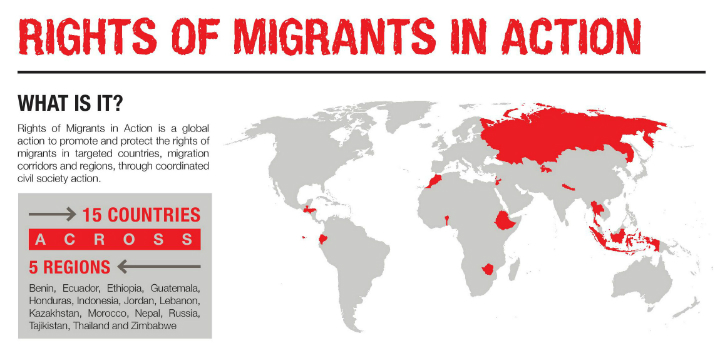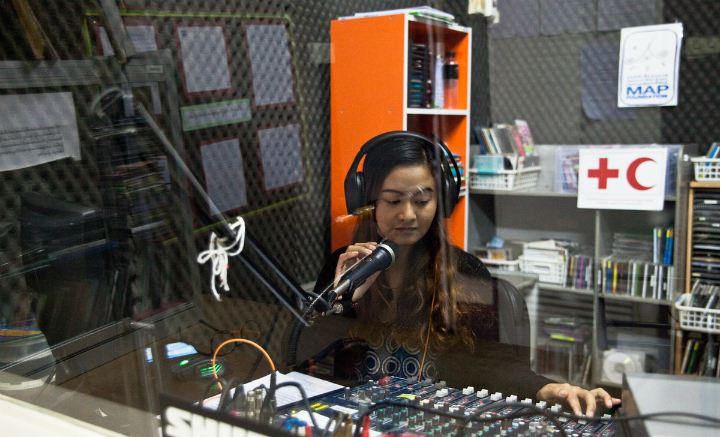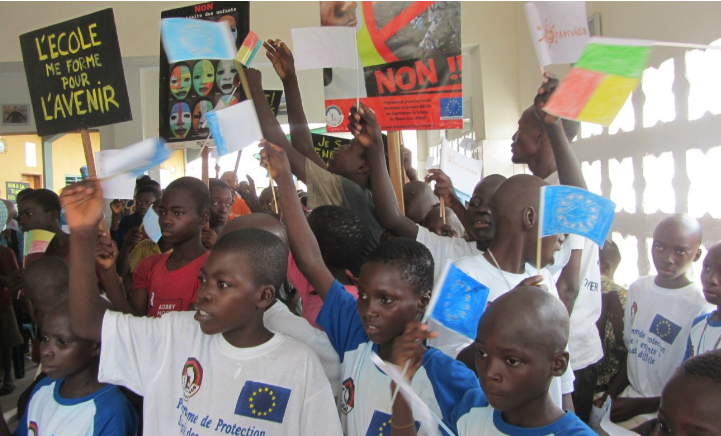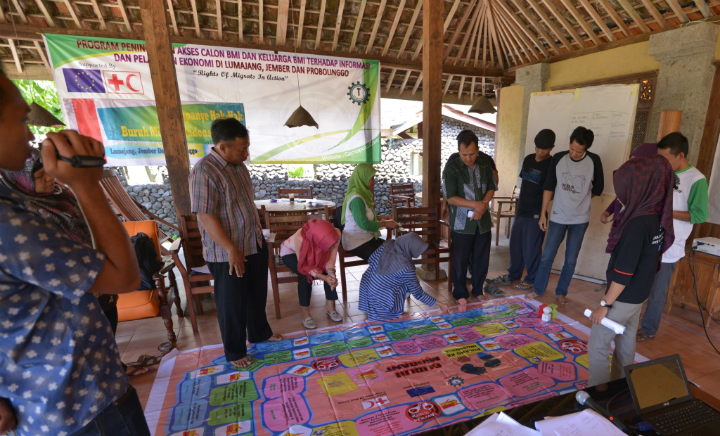Improving migrants’ access to rights and services through coordinated civil society action
The number of people living in a country other than where they were born has been increasing, reaching 244 million in 2015 (ILO). Migrants leave their home to seek opportunities, international protection, or safer and better surroundings. Whether voluntary or forced, migration brings challenges and opportunities for the new arrivals and the communities that receive them.
Innovative thinking, shared responsibilities, and coordinated efforts from the local to the global level are key to handling this phenomenon. Partnerships between governmental and non-governmental agencies, international organisations, migrant groups and host communities are essential for ensuring people can access services, fighting xenophobia and upholding respect for diversity and social inclusion, while at the same time creating opportunities for local development.

Rights of Migrants in Action (ROMIA) was a global initiative aiming to promote and protect the rights of migrant domestic workers and victims of human trafficking through coordinated civil society action. These groups are amongst the most vulnerable within the migrant population. Domestic workers are often trapped by their working conditions, exposed to violence from their employers and unable even to go out. Being isolated from their peers and other support, many are unaware of their rights.
The 45-month project kicked off in April 2014 and continued until the end of 2017. It was managed by the International Federation of Red Cross and Red Crescent Societies (IFRC) and National Red Cross and Red Crescent Societies, working in partnership with 43 local Civil Society Organisations (CSOs) in 15 countries, international organisations, and CSO networks. While the Red Cross Red Crescent coordinated ROMIA, the services on the ground were carried out by other CSOs.
Raising awareness of migrants’ rights
Through ROMIA, activities to increase understanding of migrants’ rights were specifically made to fit different contexts. For instance, in Thailand, the MAP Foundation introduced the multilingual Smart Domestic Worker phone application to disseminate information to migrants about their rights, after mobile technology was shown to be an effective way of reaching the target audience.

In Zimbabwe, the Community Development Association and Together as One initiative used popular street theater and mobile cinema to show the risks of human trafficking along migration corridors through the country. Many participants expressed how these activities helped them see the realities of human trafficking and equipped them with the knowledge to protect themselves.
In Jordan, the Justice Center for Legal Aid created stickers to attach to migrant domestic workers’ passports at customs and other entry points to the country. These stickers gave the holder vital information on different authorities they could contact in cases of abuse, violations of their rights, or human trafficking.
Everyday support
ROMIA supported safehouses for victims of violence and human trafficking across several countries, such as the Association Foyer Don Bosco in Benin, which houses migrants who have experienced violence, trauma, and isolation. Their reception centres provide psychosocial support, administer routine immunisations, and distribute school kits as a part of the Education, A Right for All campaign.

Healthcare was a significant aspect of the ROMIA project because migrant domestic workers are a high-risk group for certain conditions yet many cannot access healthcare services. As part of the project, the Zimbabwe HIV/AIDS Activists Union Community Trust (ZHAAUCT) provided free HIV testing and psychosocial support to migrant domestic workers and victims of human trafficking.
Enabling people to support themselves through their work was another important aspect of the services facilitated by ROMIA. Through the programme, migrants in Morocco, Ethiopia, and Zimbabwe, for example, have been given support to access vocational training and the labour market.
When migrants send their earnings back to their families, it is vital that those at home know how to make good use of the money. ROMIA supported GEMAPALU, an organisation in Indonesia that runs workshops on fiscal responsibility for those whose family members send them money from abroad. Some people have used the funds they have received towards their work producing crops such as coffee and mushrooms. They have also learnt to set up producers’ cooperatives and credit unions to get the most from their work.

Legal protection
Through CSOs funded by ROMIA, legal consultations and representation have been widely offered to migrant domestic workers and victims of human trafficking who lack access to legal assistance. For example, the Migration and Law Centre in Russia, which is staffed by legal advisors who are fluent in Kyrgyz, Tajik, and Uzbek, was supported in assisting migrants on issues pertaining to legal, medical, and social matters through direct consultations as well as through a 24/7 hotline.
Advocacy
Advocating for the rights of migrants and victims of trafficking is central to the work of many CSOs that were involved in ROMIA. For instance, in 2016, the Future Pioneers for Empowering Communities, with support of the Jordan Parliamentary Research Centre, proposed legislative amendments to bring anti-human-trafficking laws in line with international conventions and ensure the protection rather than criminalisation of victims. The draft law they prepared has been endorsed by 20 members of the Jordanian Parliament, submitted to the parliament, and scheduled for further discussion.
It is estimated that 116,000 people directly benefitted from ROMIA.
ROMIA was co-funded by the European Commission Directorate-General for International Cooperation and Development and the IFRC.
Basic information
Activity name
Rights of Migrants in Action (ROMIA)
Country
Benin, Ecuador, Ethiopia, Guatemala, Honduras, Indonesia, Jordan, Kazakhstan, Lebanon, Morocco, Nepal, Russian Federation, Tajikistan, Thailand, Zimbabwe
Duration
2014-2017
Partners
International Federation of Red Cross and Red Crescent Societies (IFRC), National Red Cross Red Crescent Societies

